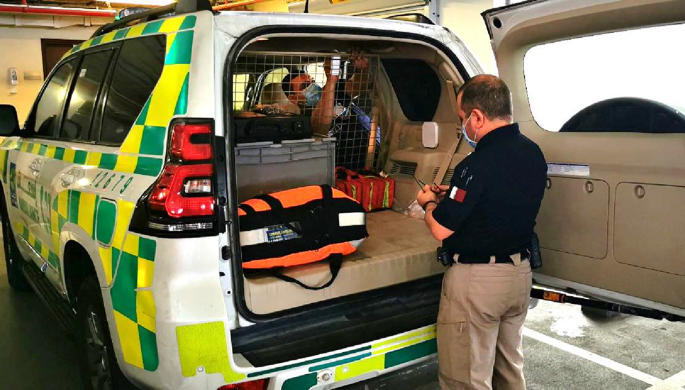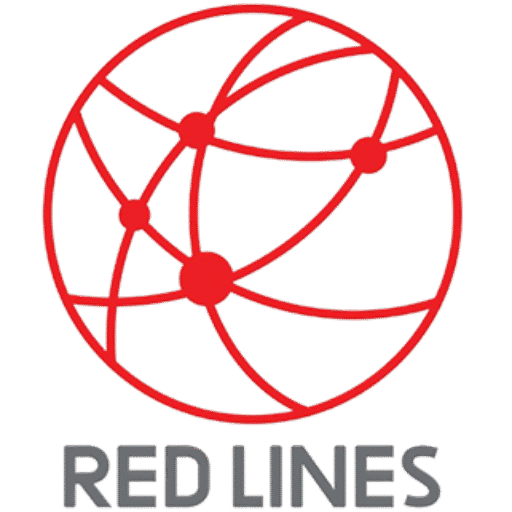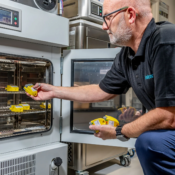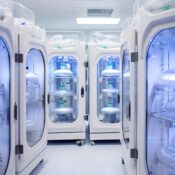In emergency medical situations, every second counts—and so does every degree of temperature. Whether transporting critically ill patients, sensitive medications, or life-saving blood units, maintaining the right climate conditions is vital. Ambulances and air medical services in Saudi Arabia operate in some of the world’s most challenging environments, where extreme heat and humidity can quickly compromise patient care. This is where the Temperature Mapping Study becomes indispensable.
At Redlines, we specialize in delivering precise Temperature Mapping Studies for emergency medical transport, ensuring that ambulances, helicopters, and fixed-wing aircraft are fully equipped to protect lives under any circumstances. Operating across Jeddah, Dammam, Riyadh, and throughout Saudi Arabia, we provide healthcare and transport organizations with the data-driven confidence they need. Learn more about our solutions at www.Redlines.sa.
Why Temperature Mapping Study Matters in Medical Transport
Unlike regular transport vehicles, ambulances and air medical services carry patients whose conditions are fragile and time-sensitive. The addition of emergency medications, vaccines, and blood products further raises the stakes. Even minor fluctuations in temperature during transport can lead to degraded medication efficacy, damaged biological samples, or risk to patient stability.
A Temperature Mapping Study ensures that every part of the vehicle maintains consistent conditions. By mapping hot and cold zones, identifying airflow disruptions, and testing real-time monitoring systems, it becomes possible to guarantee that patients and medical cargo remain safe.

The Harsh Climate of Saudi Arabia
Operating emergency vehicles in Saudi Arabia presents a unique challenge. In cities like Riyadh, desert heat regularly exceeds 45°C, while Jeddah and Dammam experience high humidity levels that strain cooling systems. For medical transport, these extremes are more than inconvenient—they can be life-threatening.
Through Temperature Mapping Studies, organizations can determine how climate control systems in ambulances or air ambulances perform under real-world conditions. This data allows for system upgrades, better insulation, and the integration of backup climate solutions—all essential for reliable emergency care in Saudi Arabia’s environment.
Protecting Patients and Medications
Every emergency trip requires not only transporting patients safely but also ensuring that the medications administered en route are stored properly. For example, critical drugs such as insulin, epinephrine, or blood plasma must be kept within strict temperature ranges.
By conducting a Temperature Mapping Study, Redlines helps medical transport providers confirm compliance with healthcare regulations, reduce risks of medication spoilage, and ensure uninterrupted patient treatment during transit. This scientific approach minimizes uncertainty and maximizes safety.
Air Medical Services and Temperature Challenges
Air ambulances provide life-saving support for patients in remote regions of Saudi Arabia, where ground transport may not be fast enough. However, the challenge of maintaining consistent temperatures at high altitudes adds another layer of complexity.
Temperature Mapping Studies for helicopters and fixed-wing aircraft identify potential weak points in cabin insulation, monitor how pressure changes affect temperature, and evaluate emergency cooling systems. At Redlines, we ensure air medical teams in Jeddah, Dammam, and Riyadh can rely on stable conditions no matter where or how far they fly.
Compliance and Trust in Emergency Care
Healthcare organizations must adhere to strict international standards when it comes to transporting patients and medications. Regulatory compliance is not optional—it is essential for patient safety and institutional credibility.
By partnering with Redlines, medical providers gain the assurance that their fleet of ambulances and air medical vehicles meet the highest standards. Our Temperature Mapping Studies generate detailed reports that not only prove compliance but also serve as a foundation for continuous improvement.
Redlines: Your Partner in Critical Moments
At Redlines, we believe that technology and science should serve humanity, especially when lives are at risk. Our Temperature Mapping Studies empower emergency medical services to deliver care that is both safe and reliable. Operating in **Saudi Arabia’s major cities—Jeddah, Dammam, and Riyadh—we are committed to supporting healthcare organizations with the expertise they need to overcome environmental challenges.
When every minute matters, trust Redlines to provide solutions that protect patients, preserve medications, and strengthen confidence in emergency care systems.
Visit us today at www.Redlines.sa to discover how we can make your medical transport safer and smarter.













